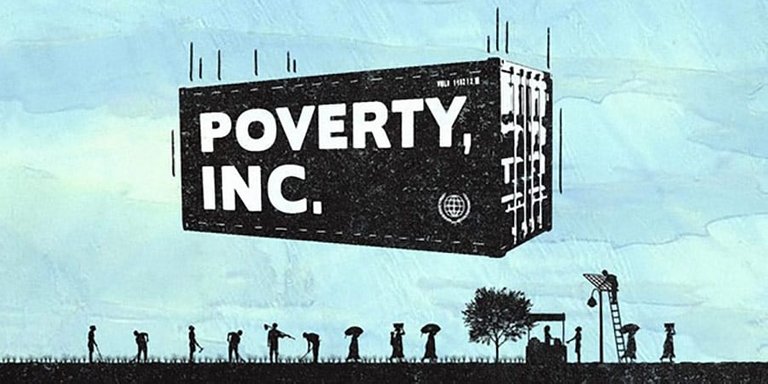This post is a reflection on the documentary Poverty, Inc. that was produced, written, and directed by Michael Matheson Miller in 2014. Throughout the documentary, the viewer is exposed to different individuals and organizations in a number of developing countries that detail the actual implications of what international donations result in during the effort to combat poverty.
Poverty Inc.
The documentary, Poverty Inc., revolved around exposing the idea that humanitarian relief to impoverished nations is actually doing more harm to those citizens than good. The current theory on how rich countries can, and should, help the poor is by donating goods and money to non-profit, charitable organizations. They can do this through government enacted subsidies, legislation that theoretically benefits the developing nations' economy, or by supporting organizations that encourage private citizens to donate money to those less fortunate than themselves.
However, the documentary refutes the idea that any of the above methods are actually beneficial. In fact, it displays multiple first-person opinions and examples of how unfortunately this method of help does more harm than good. A good example of this would be the shoe company, Toms. A self-marketed charitable business, Toms donates a pair of shoes to a person in need for every pair of Toms purchased domestically.
This seems like a win for Toms, as they get the business of consumers with a humanitarian heart, and it appears to be good for developing countries as more people are provided with shoes. However, this influx of shoes will put any local shoe producers out of business because “no one can compete with free.” This automatically makes domestic consumers dependent on foreign business for an essential item with no guarantee of how long the free shoe donations will last.
This dependence, according to the documentary, is what is ensuring that poor developing nations are unable to grow their economies. Because when citizens learn to rely on charity for basic needs, they will later either not have the desire, or knowledge, to take production back into their own hands and economy. Without this creation of production, and by correlation jobs, the extreme poor will never be able to climb out of their situation into an environment where they can make their own financial decisions that will ultimately stimulate the domestic economy.
My Thoughts
This documentary made me consider how many people, myself included, do not question if the money we are donating to charity is actually benefiting who we want to help. While I do not believe that the intent of most poverty-fighting organizations is to deceive donators, as the money is actually going towards helping the poor, I do now see how many of us do not question the aftereffects of what donations to countries can do to their economy.
I also feel more enlightened in my understanding of what benefits NGOs (non-government organizations) and charities actually provide, and what about them is potentially harmful to their proclaimed cause. I think that this documentary has influenced me to believe that NGOs are best used for disaster relief in the short term, and to help increase local production and jobs in an impoverished economy. However, when they stick around in impoverished countries, continually supplying support throughout the years, they are not helping people in the domestic country but simply ensuring that their employees have a stable job. This incentive encourages NGOs to put up camp in extremely impoverished countries, never allowing them to develop internally in an independent manner that would actually be beneficial, and in the long run ensures that those suffering from poverty will not be better off.
